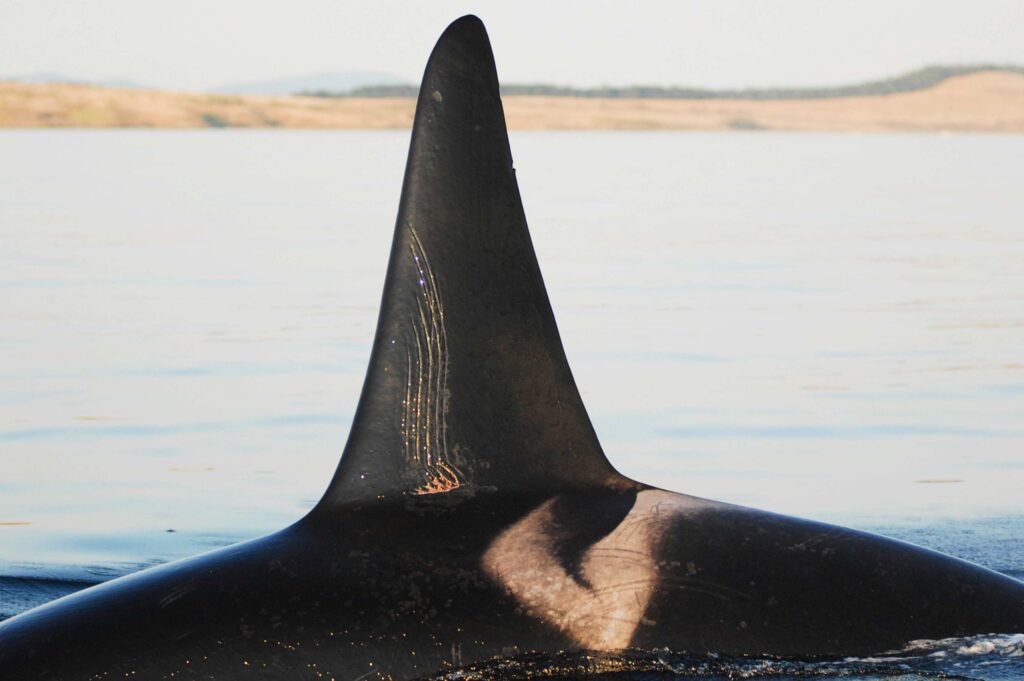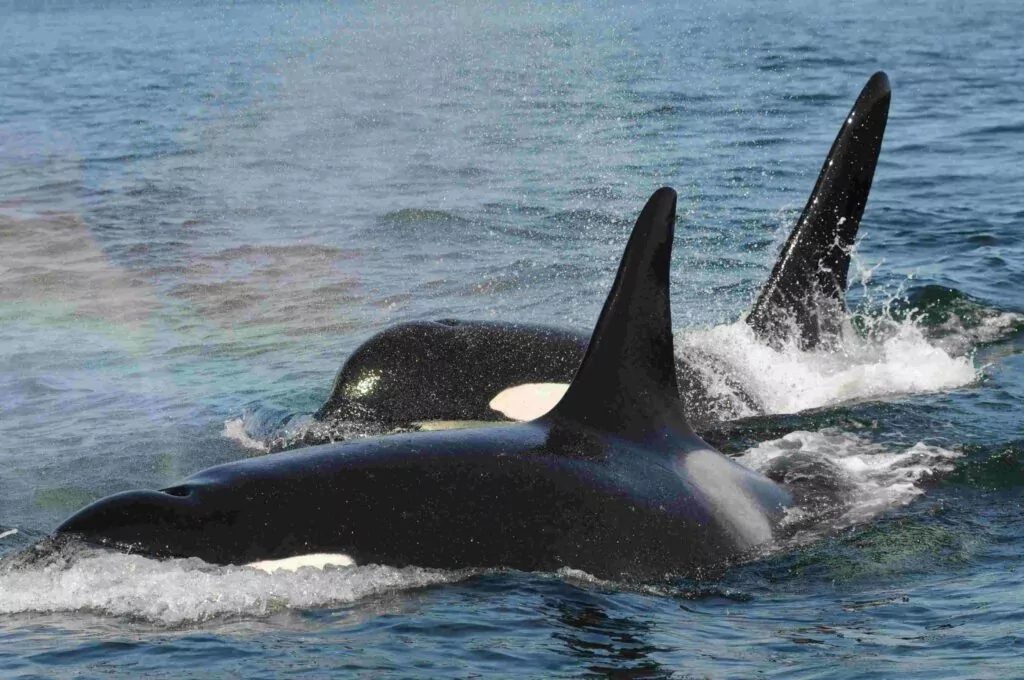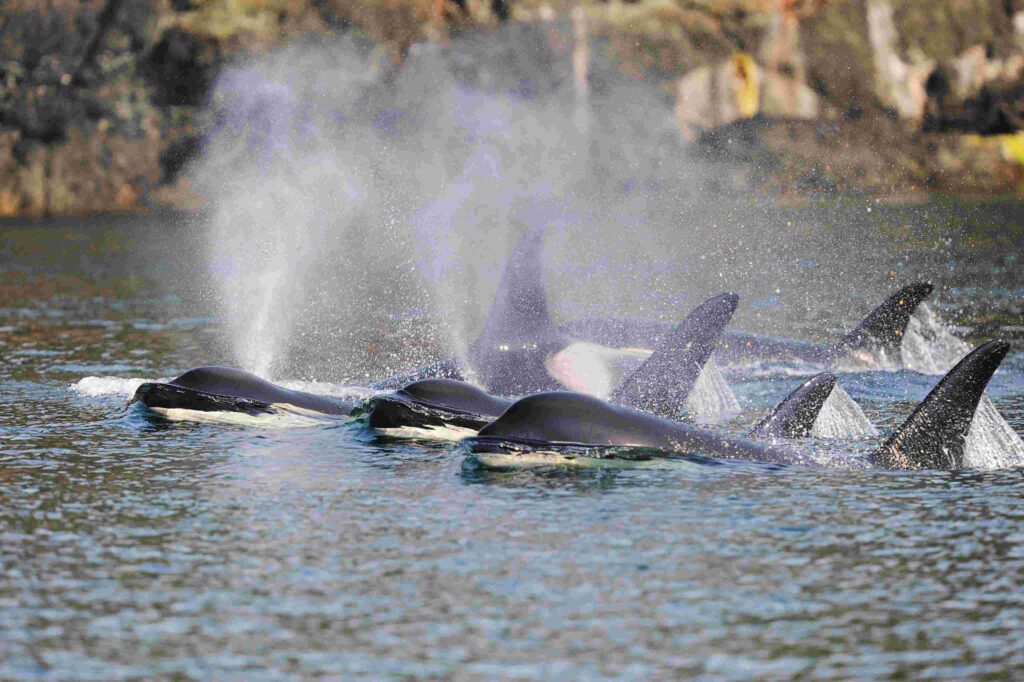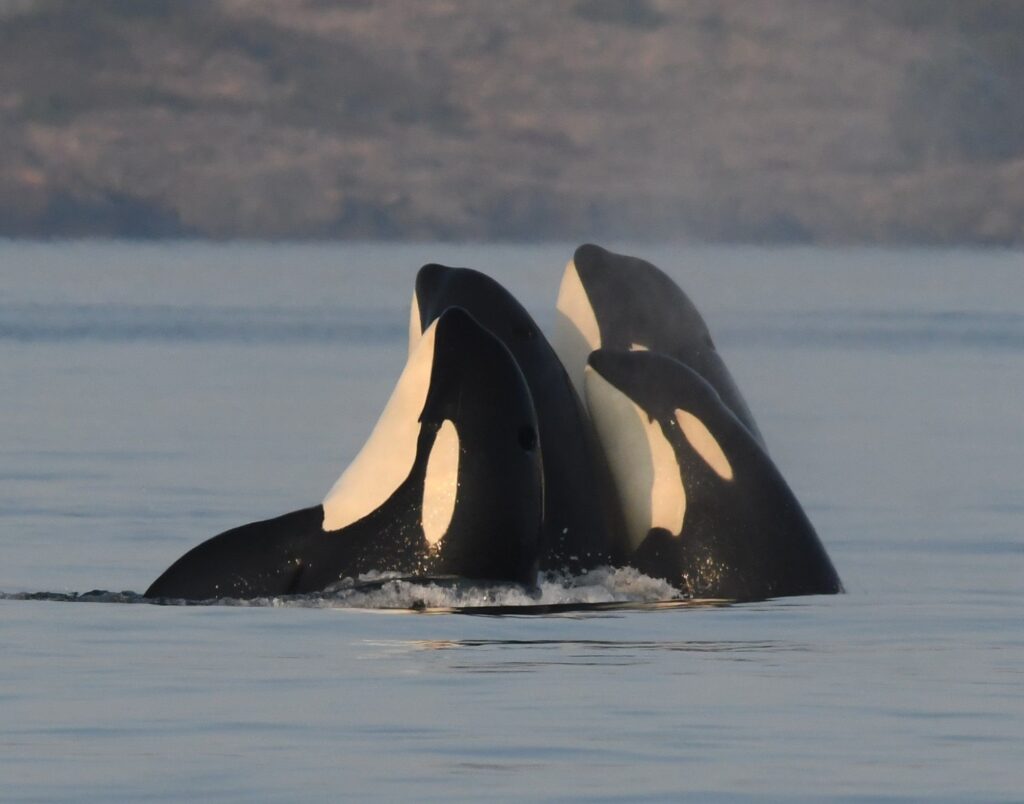Male killer whales are best protected from other whales if they have post-menopausal mothers – but daughters don’t get the same protection, according to new Anglo-American research.
Scientists have been studying the scars left when one killer whale scrapes its teeth across the skin of another, while fighting or during rough play. With no natural predators other than humans, tooth-marks are likely to be inflicted only by other killer whales, and this can happen either within social groups or when two pods meet.

Some rake-marks can be severe, and an open wound is a potential source of infection, but the healed scars can last for life and prove useful in helping researchers to identify the whales.
Males have been found to display 35% fewer such rake-marks if their mothers have remained with them, and are past breeding age. Five species of toothed whales are the only animals other than humans known to experience menopause, though why that should be remains a mystery to scientists.
Boosting males’ life-chances
The new study was carried out by the the Universities of Exeter and York in the UK and the Centre for Whale Research (CWR) in Washington State in the USA. Part of long-term research into southern resident killer whales off North America’s Pacific coast, it is said to add to growing evidence that post-reproductive females boost the life-chances of male offspring.

Instead of competing with their daughters to breed, they appear to have evolved to pass on their genes by helping their children and grandchildren.
“Menopause might have evolved so mothers and their daughters don’t have concurrent offspring, leading to undesirable competition for scarce resources,” says the CWR. “Post-menopausal whales have proven to spend significant time helping their offspring and grand-offspring: food-sharing and leading their families to better feeding areas.”
“For males whose mother was still breeding, we found no evidence that her presence reduced tooth-rake injuries,” said lead author of the study Charli Grimes from Exeter’s Centre for Research in Animal Behaviour. “We can’t say for sure why this changes after menopause, but one possibility is that ceasing breeding frees up time and energy for mothers to protect their sons.
“Males can breed with multiple females, so they have more potential to pass on their mother’s genes. Also, males breed with females outside their social group – so the burden of raising the calf falls on another pod.”
Dangerous interactions
Prof Darren Croft, also from Exeter University, said it was possible that older females would have previous experience of individuals in other pods and knowledge of their behaviour, so were equipped to lead their sons away from potentially dangerous interactions. “The mothers might also intervene when a fight looks likely,” he said.
“Just as in humans, it seems that older female whales play a vital role in their societies – using their knowledge and experience to provide benefits, including finding food and resolving conflict.”
“Post-reproductive female killer whales offer numerous life-sustaining benefits to their offspring and grand-offspring, with extra emphasis on caretaking the sons,” says the CWR, describing the males as “truly mommies’ boys”.

“When a son reproduces, he will hopefully mate with females from outside the family group, so there is no cost to the local group in rearing his calf. In contrast, when a daughter reproduces, the calf is born in the local group and is another mouth to feed.”
Decline in numbers
Sons have the potential to produce multiple calves in a given year, whereas females typically have only one every six years. “It’s understandable why moms would invest their energy in their sons rather than their daughters – which is what they do,” says the CWR.
“Like humans, it seems that older female killer whales play a vital role in their societies – using their knowledge and experience to provide family and community benefits, including finding food and resolving conflict.

“What is concerning for the future of the southern resident killer whale population is that the number of post-reproductive females has declined over the past two decades.”
The study was supported by the Natural Environment Research Council and is published in the journal Current Biology.
All photographs were collected under research permits granted by the USA National Oceanic & Atmospheric Administration and the Department of Fisheries & Oceans Canada. All drone footage was collected under research permits issued by the US National Marine Fisheries Service.
Also on Divernet: Why are killer whales attacking boats? Expert Q&A, Did orca kidnap pilot whale calf?, Female killers v blue whale – a world-first, Diver’s orca binge brings record fine

